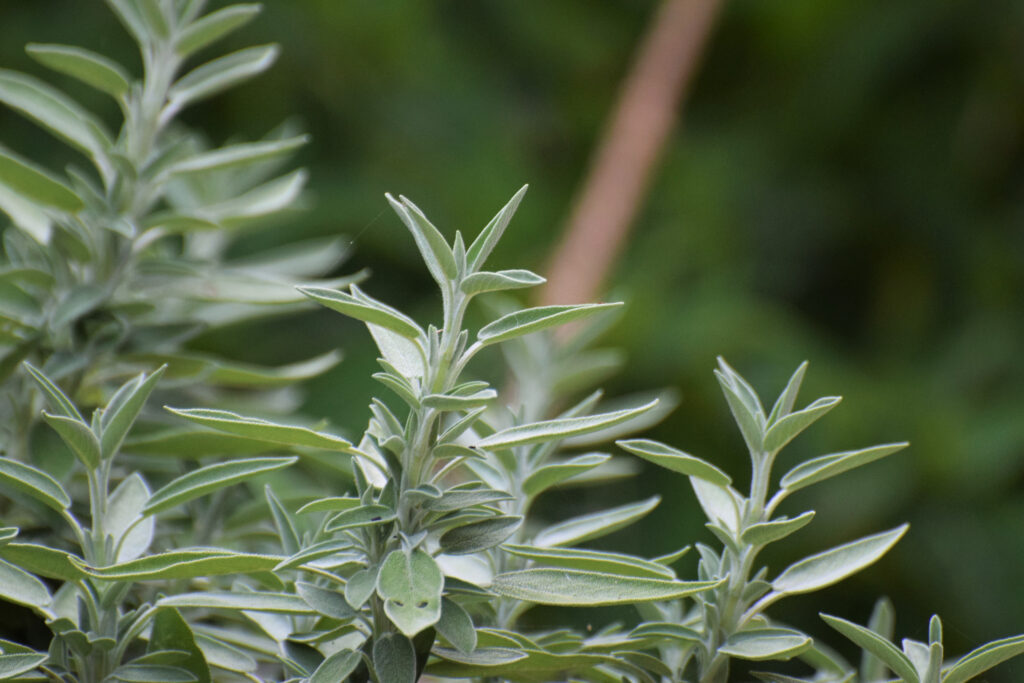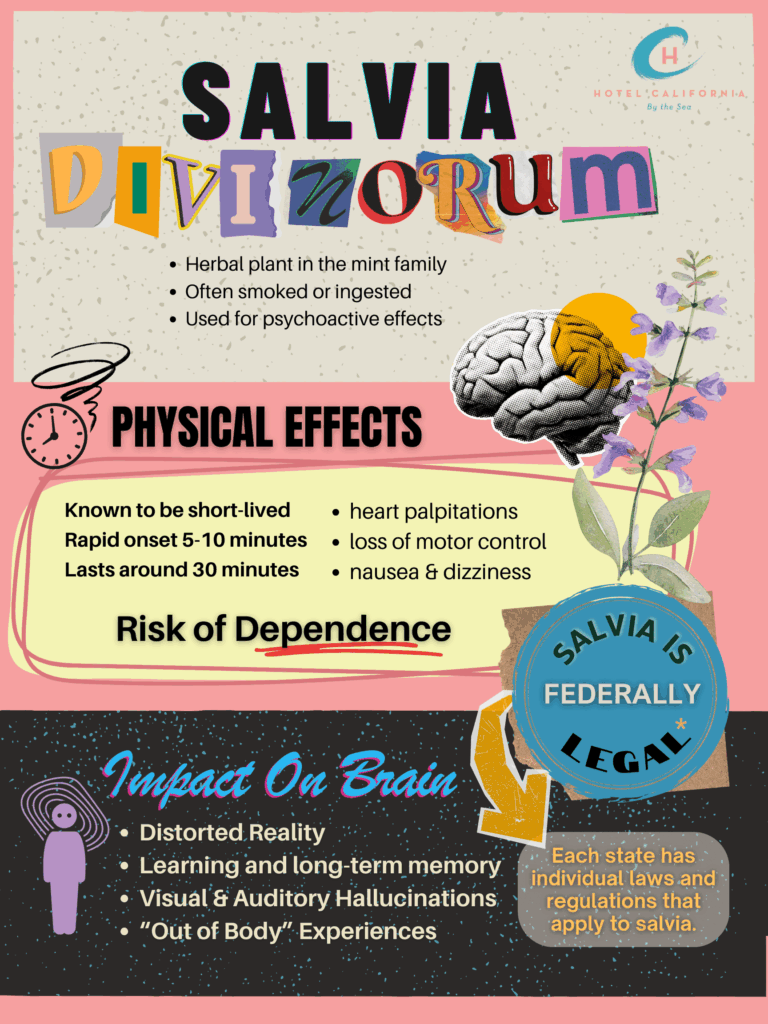Is Salvia divinorum legal?
Salvia divinorum is a substance used to produce psychoactive effects of hallucinations and altered states of consciousness. Is Salvia divinorum legal? In some states, it is considered a controlled substance, but not at the federal level. It is legal in 21 states in the US. However, the DEA has classified salvia as a drug of concern since 2003. It is generally considered safe to use, but can cause some adverse effects when taken in high doses.

Salvia divinorum is an herbal plant in the same family as mint. It is native to Southern Mexico and certain parts of Central and South America. The Mazatec Indian people have used it in traditional ceremonies for centuries. It was used as a spiritual and healing plant. Today, it is mostly used recreationally for psychedelic effects.
The active ingredient in Salvia is salvinorin A. It is considered the most potent naturally occurring psychoactive substance. The hallucinogenic compound creates short-lived effects of colorful visions, loss of consciousness, feelings of levitation, deja vu and other out-of-body experiences. The fresh leaves of salvia are turned into an extract to use in pipes or water bongs. It can also be smoked or infused into drinks or vape pens. Sometimes users chew on the raw fresh leaves to experience a mild hallucinogenic effect.
Where is Salvia divinorum legal?
Salvia is legal in some states, including Alaska, Arizona, California, Idaho, Massachusetts, Montana, Nevada, New Jersey, New Mexico, New York, Oregon, South Carolina, Utah, Vermont, Virginia and Washington. Despite its legality in some states, each state has its own regulations and restrictions regarding the substance and prohibits the sale of the drug to underage people.
In states like California, Maine and Maryland, there are age restrictions of 18 or 21 and over for purchasing the substance. In Washington state, salvia is legal and readily available in smoke shops. There is no legal age restriction on Salvia products. In Ohio, the substance is considered illegal. It is illegal in 29 other states.
Currently, salvia isn’t approved for any sort of medical use in the US, but it is not a federally controlled substance. The legality of the substance varies from state to state. Some states have age restrictions and some states outlaw extracts but not the actual salvia plant. The legal status of Salvia varies depending on the location. This can sometimes cause confusion when traveling between states.

Salvia Divinorum
As a native plant to places like Southern Mexico, salvia is also grown both indoors and outdoors in humid and subtropical climates. The perennial herb belongs to the mint family. The plant has a spade shape leaf that looks similar to a mint leaf. The plant itself grows up to three feet high with hallow square shaped stems and white flowers with purple calyces.
Common street names for salvia include Purple Sticky, Maria Pastora, Sage of the Seers, Diviners Sage, Sally D and Magic Mind.
The use of salvia is common among young people. A study found that an estimated 3.5% of incoming college freshmen in the US reported using the drug. It can be very potent and even the smallest dose can produce hallucinogenic effects depending on the method of drug consumption.
What are the Effects of Salvia?
The effects of salvia can occur within 5-10 minutes after smoking or inhaling the drug. Users typically experience a rapid onset of effects like intense hallucinations that can impair judgment and disrupt sensory and cognitive functions. It is known to have short-lived effects. Salvia is considered one of the strongest hallucinogens and works by acting on the kappa opiate receptor site in the brain.
Salvia is most often smoked. Its effects can last up to 30 minutes, with the peak effects starting a few minutes after being smoked. It can also be chewed and absorbed through the oral mucosa. This method of ingestion results in an altered state of cognition that can last anywhere from 1-2 hours. When it is taken in liquid form, it is usually brewed into a tea or the extracts are mixed into drinks.
Check Your Insurance Coverage for FREE
Find out if your insurance covers addiction treatment in minutes. We accept most insurance!
- Visual and auditory hallucinations – Users can experience a distorted sense of reality and altered perception of their surroundings. Users can also experience perceptions of light, vivid colors, shapes and body movements.
- Nausea
- Dizziness
- Impaired cognitive functioning
- Blurred vision
- Restlessness
- Sedation
- Loss of control or motor functions
- Irregular heart rate
- Slurred speech
- Anxiety, fear and paranoia – Users who experience a bad trip often having feelings of panic, a sense of overlapping realities and negatively charged hallucinations.
- Depersonalization
- Euphoria and uncontrollable laughter
- Floating
- Loss of touch with reality
- Temperature changes in the body
- Talkativeness
Use of Salvia
There are very few studies done on Salvia. Research on the substance is very limited and it has not been studied enough to understand any long term effects it may have on a person. Salvia is often marketed as a “legal high” or “natural high.” It is sold as dried leaves or as a liquid extract.
The psychedelic effects of salvia are believed to occur between the doses of 200-500 micrograms. Smaller doses of the drug are often used to treat conditions of inflammation, pain, stomach and digestive issues, headaches, arthritis, eczema and menstrual cramps. Even in low doses, salvia can cause mild hallucinations and analgesic effects.
In high doses, salvia can cause sensations of floating, flying, experiencing an altered reality and feeling an out-of-body experience. Higher doses of the drug are associated with contributing to mental health symptoms that can eventually lead to the development of psychotic symptoms.
Reach out to Hotel California by the Sea
We specialize in treating addiction and other co-occurring disorders, such as PTSD. Our Admissions specialists are available to walk you through the best options for treating your addiction.
Treatment for Substance Use Disorder
Salvia isn’t considered to be an addictive drug. It is unlikely you will develop a chemical dependency. However, some users may become accustomed to the high and may continue to recreationally use the drug in order to experience the psychedelic effects. Long-term use of the drug is still unknown due to limited research and studies. However, some users can experience negative effects from the use of the drug.
Professional behavioral treatment programs such as Hotel California by the Sea provide customized treatment plans including ones that help with an addiction to hallucinogenic substances. We offer treatment at all levels of care including detox, residential, PHP and IOP. We utilize evidence-based treatment methods such as CBT, DBT, and EMDR therapy. Hotel California by the Sea is dedicated to helping clients reach their goals of sobriety and overcome their addiction.
References:
https://www.healthline.com/health/what-is-salvia
https://pmc.ncbi.nlm.nih.gov/articles/PMC6434906
https://www.dea.gov/sites/default/files/2020-06/Salvia%20Divinorum-2020_0.pdf
